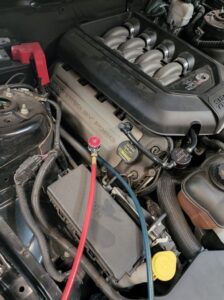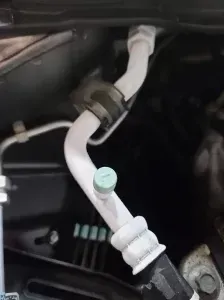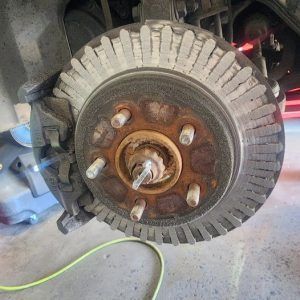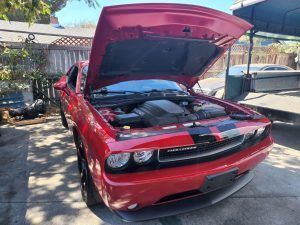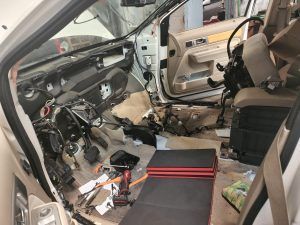Car AC Condenser Problems? A Comprehensive Repair Guide
If you’re experiencing issues with your car’s AC condenser, don’t fret – we’ve got you covered!
In this comprehensive repair guide, we will walk you through the common problems that can occur with car AC condensers, how to diagnose these issues, and provide you with a step-by-step guide to repairing them. With our detailed instructions, you’ll be able to tackle these problems yourself, saving you time and money.
We’ll also share some valuable tips on preventing AC condenser problems in the future, helping you maintain a comfortable and cool driving experience. However, if the repairs seem too complicated or you’re unsure of your skills, we’ll also advise you on when it’s best to seek professional help.
So, get ready to roll up your sleeves and become your own car AC condenser repair expert!
Key Takeaways
– Common problems with car AC condensers.
– Signs of a failing car AC condenser.
– Diagnosing AC condenser problems.
– Troubleshooting techniques for AC condenser issues
Common Problems with Car AC Condensers
Are you experiencing common problems with your car AC condenser? Let’s fix them together!
The causes of car AC condenser damage can vary, but some common culprits include debris buildup, corrosion, and impact damage from road debris or accidents.
Signs of a failing car AC condenser include reduced cooling performance, strange noises from the AC system, and leaks or puddles of refrigerant under the car. If you notice any of these issues, it’s important to address them promptly to avoid further damage to your AC system.
To diagnose AC condenser problems, start by visually inspecting the condenser for physical damage or debris buildup. Check for bent fins or leaks in the condenser coil. Additionally, use a pressure gauge to measure the refrigerant pressure in the system. If the pressure is too low or too high, it could indicate a problem with the condenser.
By identifying and addressing these common problems with your car AC condenser, you can ensure that your AC system functions optimally.
Now, let’s move on to the next section where we’ll discuss how to diagnose AC condenser problems without specialized tools.
How to Diagnose AC Condenser Problems
First, you’ll want to check if the air blowing from your vents is warm instead of cool. If that’s the case, it could indicate a problem with your car’s AC condenser.
There are several potential causes for AC condenser problems, including a leak in the refrigerant, a faulty compressor, or a clogged condenser. To troubleshoot the issue, you can start by visually inspecting the condenser for any signs of damage or leaks.
Next, you can use a pressure gauge to check the refrigerant levels and ensure they’re within the recommended range. If the levels are low, it could indicate a leak that needs to be repaired.
Additionally, you can test the functionality of the compressor by listening for any unusual noises or vibrations when the AC is turned on.
By following these troubleshooting techniques, you can pinpoint the specific issue with your AC condenser and proceed with the necessary repairs.
Now that you’ve diagnosed the problem, let’s move on to the step-by-step guide to repairing your AC condenser.
Step-by-Step Guide to Repairing Your AC Condenser
To start repairing your AC condenser, begin by visually inspecting the unit for any signs of damage or leaks. Look for bent or damaged fins, oil stains, or any other obvious issues. Once you’ve identified the problem areas, follow these steps to fix your AC condenser:
1. Disconnect the power: Before working on your AC condenser, make sure to turn off the power supply to avoid any accidents.
2. Clean the condenser coils: Use a soft brush or vacuum cleaner to remove any dirt, debris, or dust that may have accumulated on the condenser coils. This will help improve the efficiency of the unit.
3. Check and replace the fan motor: Inspect the fan motor for any signs of wear or damage. If necessary, replace it with a new one to ensure proper airflow.
After completing these steps, you should have successfully repaired your AC condenser. Remember to test the unit to ensure it’s functioning properly.
For more detailed instructions and troubleshooting tips for preventing AC condenser problems, refer to the next section.
Transitioning into the subsequent section about tips for preventing AC condenser problems, it’s important to take proactive measures to maintain your AC condenser and prevent future issues.
Tips for Preventing AC Condenser Problems
Maintaining your AC condenser properly can help you avoid future issues and keep your cooling system running smoothly. To ensure the longevity of your AC condenser, it’s essential to follow a maintenance checklist.
Firstly, regularly check and clean the condenser coils to remove any dirt, debris, or vegetation that may have accumulated. Use a soft brush or a low-pressure hose to gently clean the coils, being careful not to damage them.
Additionally, inspect the fins for any bending or damage, and straighten them using a fin comb if necessary. It’s also important to clean or replace the air filters regularly to prevent clogging and airflow restriction.
In addition to the maintenance checklist, there are several DIY cleaning methods you can utilize. For instance, you can clean the condenser unit by using a mild detergent and water mixture to remove any dirt or grime. Be sure to rinse thoroughly and allow it to dry completely before turning the unit back on.
Another useful tip is to trim any nearby vegetation to ensure proper airflow around the condenser.
By following these maintenance tips and utilizing DIY cleaning methods, you can significantly reduce the risk of AC condenser problems. However, if you encounter any issues or are unsure about performing maintenance tasks, it’s always best to seek professional help.
When to Seek Professional Help
If you’re experiencing issues with your cooling system, it’s essential to seek professional help to ensure a quick and efficient resolution. AC condenser problems can be complex and require specialized knowledge and equipment to diagnose and repair. Here are some signs of AC condenser damage that indicate it’s time to call in the experts:
– Insufficient cooling: If your car’s AC is blowing warm air or not cooling as effectively as it used to, it could be a sign of condenser damage. A professional technician can perform a thorough inspection to identify the root cause.
– Strange noises: Unusual noises coming from your car’s AC system, such as grinding or rattling sounds, may indicate a problem with the condenser. These noises should never be ignored, as they could signify internal damage that needs immediate attention.
– Leaking refrigerant: If you notice fluid pooling under your car or a strong odor coming from the AC vents, it could be a refrigerant leak caused by a damaged condenser. This requires professional repair to fix the leak and recharge the system.
While it’s tempting to attempt DIY troubleshooting for AC condenser issues, it’s best to leave it to the professionals. AC systems are intricate and require specialized tools and expertise for accurate diagnosis and repair. Seek professional help to avoid further damage and ensure your car’s cooling system is working optimally.
Frequently Asked Questions
Can I use a DIY AC condenser repair kit instead of seeking professional help?
Using a DIY AC condenser repair kit can be an option, but it has pros and cons. Pros: cost-effective and can be done at your convenience. Cons: may not fix the underlying issue and requires technical knowledge.
How long does it usually take to repair an AC condenser?
The average repair time for an AC condenser depends on the specific problem. Common causes of AC condenser problems include refrigerant leaks, damaged coils, and electrical issues.
Can I still drive my car if the AC condenser is not working?
Yes, you can still drive your car if the AC condenser is not working. However, it will result in no cool air. Temporary fixes include adding refrigerant, checking for leaks, and using a fan.
Is it possible to prevent AC condenser problems by regularly cleaning the car’s air filter?
To prevent AC condenser problems, regularly cleaning the car’s air filter is not enough. However, using a DIY AC condenser repair kit can help maintain the condenser’s efficiency and prolong its lifespan.
Are there any temporary fixes I can try before getting my AC condenser repaired?
You can try a few temporary fixes before getting your AC condenser repaired. Some alternative solutions include checking for leaks, adding refrigerant, and cleaning the condenser coils. However, it’s important to get professional repairs for a long-term fix.
Conclusion
In conclusion, taking care of your car’s AC condenser is crucial for maintaining a functional and comfortable driving experience. By identifying and diagnosing problems early on, you can save yourself from costly repairs down the line. Remember to follow the step-by-step guide provided in this comprehensive repair guide to fix any issues with your AC condenser.
Additionally, implementing preventive measures such as regular maintenance and cleaning can help prolong the lifespan of your condenser. If you encounter complex problems or lack the necessary expertise, it’s always advisable to seek professional help to ensure the proper functioning of your car’s AC system.


